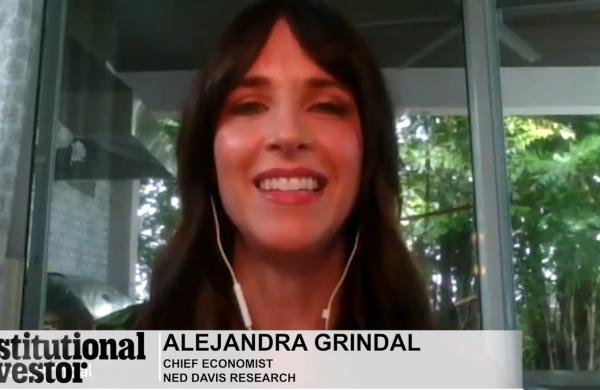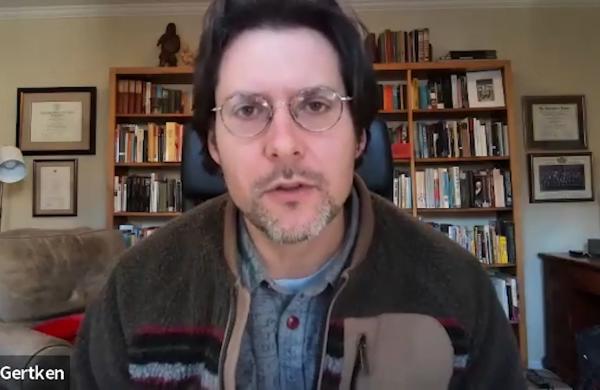During the late 1990s, while Portugal Telecom's bigger European rivals, Deutsche Telekom and France Télécom, ran up tens of billions in debt in a mad dash for growth, PT's executive chairman, Miguel Horta e Costa, and his predecessor, Francisco Murteira Nabo, kept a tight grip on spending. Thus PT, unlike its German and French counterparts, was able to report profits in 2001 and 2002, even as it was cutting its E5.4 billion ($6.4 billion) debt by 42 percent. As for Horta e Costa's CEO peers, Ron Sommer of Deutsche Telekom and Michel Bon of France Télécom, today both are out of jobs.
"Our track record proves that we will never spend imprudently in making our vision a reality," says Horta e Costa, 55.
Plainly, the patrician CEO runs a well-disciplined company that can withstand the harshest blows of a market storm. Can he also fashion one that shines in more favorable weather? "PT has been appreciated by investors as one of the best defensive stocks in the sector," points out Luis Prota, a telecommunications analyst at Morgan Stanley & Co. in Madrid. "But management's challenge will be to find ways to grow, as bigger telecom companies get their acts together."
In contrast to the 56 percent rout of the Dow Jones Stoxx European telecoms index over the past three years through mid-November, PT has slipped less than 15 percent. Since January the stock has risen 17 percent.
Horta e Costa's frugality is evident in Brazil, where he launched a 50-50 joint venture, Vivo, with Spain's Telefónica in April 2003. The two companies, with 20 million local customers between them, should realize economies of scale without needing to make big additional investments.
This year the onetime Portuguese telephone monopoly is expected to report a 2 percent rise in profits, to E399 million, on a 1.6 percent gain in revenue, to E5.67 billion. Almost half of Portugal Telecom's re-venues come from mobile phone services; less than 40 percent are from fixed- line business; and the remainder -- nearly E700 million worth -- is from cable and satellite TV operators and programmers, an Internet provider and newspapers and magazines.
PT must contend with obstacles to its growth. Fixed-line cus- tomers, for example, are switching to mobile services, including those of Optimus and Vodafone Group's Telecel. PT will have to spend more to retain such customers, putting pressure on its margins. And its home market for all telecom services is a Portuguese population of just 10 million.
Horta e Costa, who earned a BA in economics from the Universidade Técnica de Lisboa in 1972, was named CEO in May 2002 after running PT's international operations for four years. Apart from a stint as Portugal's secretary of state for foreign trade in 1987'90 and four years following that as vice-chairman of BES Investimento, the investment banking arm of Banco Espírito Santo, Horta e Costa has spent nearly his entire career at PT. He recently spoke to Institutional Investor Staff Writer David Lanchner at PT's Lisbon headquarters.
Institutional Investor: How can Portugal Telecom continue to stand out as larger rivals like France Télécom and Deutsche Telekom restructure and lower debt?
Horta e Costa: The advent of third-generation mobile use and growing numbers of high-speed broadband connections mean content will play a meaningful role in telecom profits sooner rather than later. PT will remain an attractive stock regardless of the restructuring efforts of other telecom operators precisely because we are set up to exploit the convergence between traditional telecom services and content more efficiently than most of our rivals. The reason for that is the unique range of our businesses in Europe, which stretch from fixed and wireless telephony to the Internet, cable TV, satellite TV and magazines.
Aren't you concerned about investor skepticism regarding synergies between content and ways of delivering it?
No, because our track record proves that we will never spend imprudently in making our vision a reality. The priority at PT has always been improving the efficiency of our organization and keeping costs down. The name of the game in telecoms when it comes to keeping shareholder loyalty is trust in the operator's financial strength. For that reason, we will never jeopardize our A credit rating.
What can you do to stop the decline in revenue from fixed-line services migrating to mobile?
I'm not sure this is really relevant if we look beyond the short term. More than ever, we are evolving from a paradigm where the industry is divided by means of delivery, like wireline, wireless and cable, to one in which the borders will phase out. Soon our customer will have a mobile unit that will connect to, say, a fixed base at home linked to broadband, cable and the Internet. One of the keys to the convergence is broadband. We are now increasing our traffic in wireline as a result. That is a lower-margin business than voice, but we feel that demand for broadband is just beginning. It will explode, and any loss in margin will be made up by rapidly growing volume.
But isn't the migration from fixed to mobile within Portugal still a threat because PT customers may opt for a rival mobile operator?
It could be. Clearly, we have to develop our services and increase their richness so that we can ensure the loyalty of our customers. With that in mind, we are selling new pricing plans that offer special discounts for clients who take packages that include, for example, some combination of mobile, fixed and cable services. PT is the only telecom in Portugal that can offer a package that covers all three areas, and that is a major advantage. Again, to keep customers using all our services, we want to move beyond the traditional telecom offer to one that includes entertainment. Here we have a broad range of possibilities for the future, from video on demand to interactive TV.
How much money will you have to spend to develop the third-generation mobile network that is the key to your vision?
Not that much. Initially, we only had to pay E100 million for our third-generation license, and now infrastructure suppliers are coming through with the technology to make 3-G a reality at a much cheaper price than we once thought possible. We are building the 3-G network today and expect to deploy it by the middle of next year. The capital expenditure for the rollout will be similar to what we paid for the license.
Do you expect mobile services in Portugal to consolidate?
Yes, since we don't believe the market can profitably support three mobile operators long term. We have 52 percent of the market, and our rivals, Vodafone and Optimus, have more or less evenly split the remaining 48 percent. Many analysts say a 30 percent market share is necessary for sustained profitability. The time frame for potential consolidation is far from certain, however. It depends not only on our wishes and those of our competitors but also on what government and regulatory officials want.
Brazil is an important market for you. How confident are you that the economy there has stabilized?
Frankly, it is difficult to have a prognosis. I like the economic team of President [Luiz Inácio] Lula da Silva. They have done a good job of stabilizing the real. But Brazil has always been a surprise, both positively and negatively. Brazil will continue to be a country with great potential for the future, and we are there to stay. This is a market where only 22 percent of the population uses a mobile today, versus 86 percent in Portugal, so there is plenty of scope for development.
Given the volatility of Brazil's real, are your revenues there hedged?
We've hedged our debt but not our revenues. If the exchange rate makes repatriation appropriate, we can do that, but if it doesn't, we can use our reals for increased investment in our network without increasing debt exposure to Brazil.
Your Brazilian operation is a joint venture with Telefónica. Would it make sense to consider a full merger with a telecom operator like Telefónica?
We are not in consolidation mode in Europe, and most other telecom operators clearly still have some way to go before getting their balance sheets in order. We are very happy as we are. We have an interesting, very solid, broadly based domestic business with a very large, potentially high-growth operation in Brazil. Long term, however, everything is possible.





